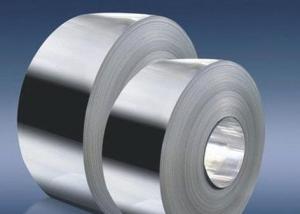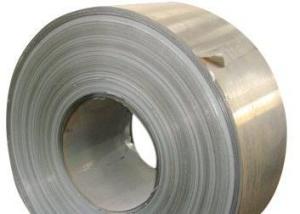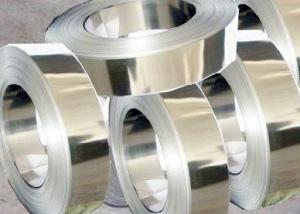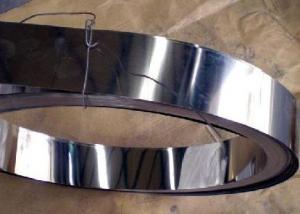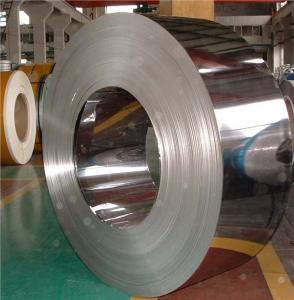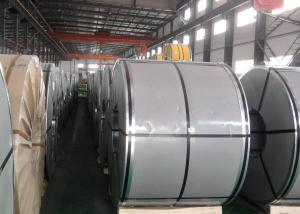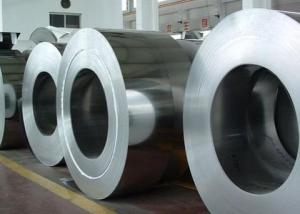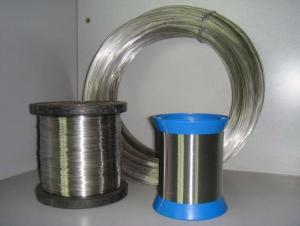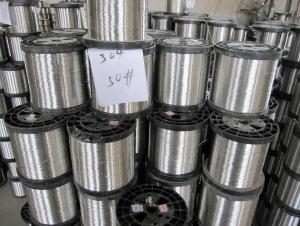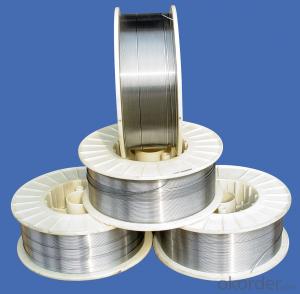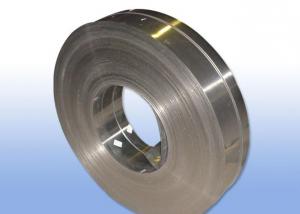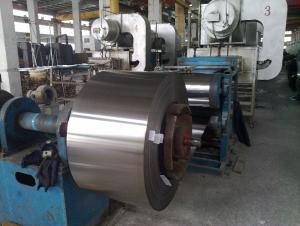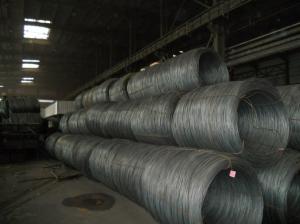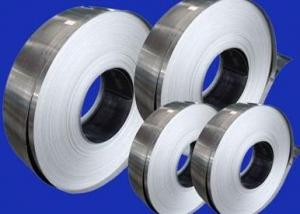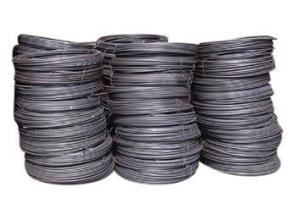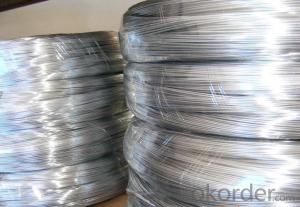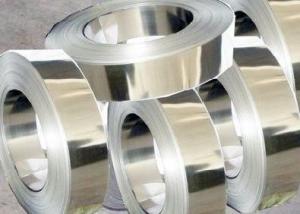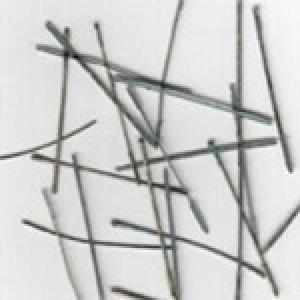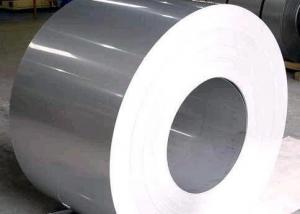304 Stainless Steel Strips
- Loading Port:
- China Main Port
- Payment Terms:
- TT or LC
- Min Order Qty:
- 1 Ton m.t.
- Supply Capability:
- 3000 Tons Per Month m.t./month
OKorder Service Pledge
OKorder Financial Service
You Might Also Like
AISI 304 Stainless Steel Strips
1. Chemical composition
|
C |
Si |
Mn |
P |
S |
Ni |
Cr |
|
max0.08 |
max1.00 |
max2.00 |
max0.045 |
max0.03 |
8.00-10.50 |
18.00-20.00 |
2. Mechanical properties
|
Yield Strength |
Tensile |
Elongation |
Hardness (HV) |
Hardness (HRB) |
|
≥ 205 |
≥ 520 |
≥ 40 |
≤ 200 |
≤ 90 |
3. Standard: AISI, ASTM, GB, EN, DIN, JIS
4. Surface: 2B, NO.1, BA, NO.4, Hairline, SB, Mirror finish, Anti-skid, Cherkered etc.
5. Size: Thickness: 0.3-3mm (cold rolled), 3-40mm (hot rolled)
Width: 18-600mm
Length: As customers' request.
6. MOQ: 1 Ton
7. Payment terms: T/T or L/C
8. Packing: Seaworthy package with wooden or Iron pallets with the paper and the steel strip, or as customers' request.
9. Delivery time: Usually about 7 days after we confirming the order, or according to your quantity.
If you have any demand, pls feel free to contact me.
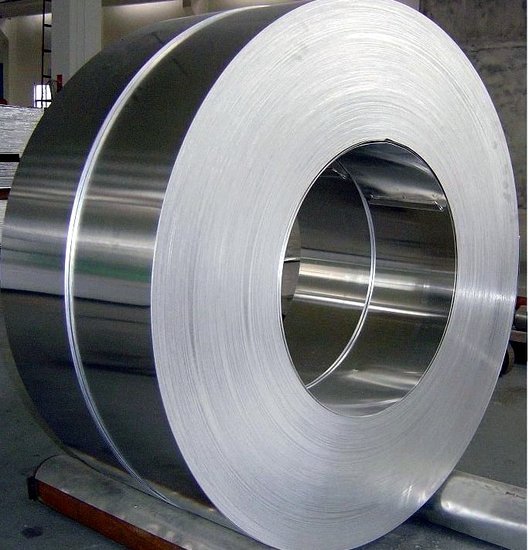
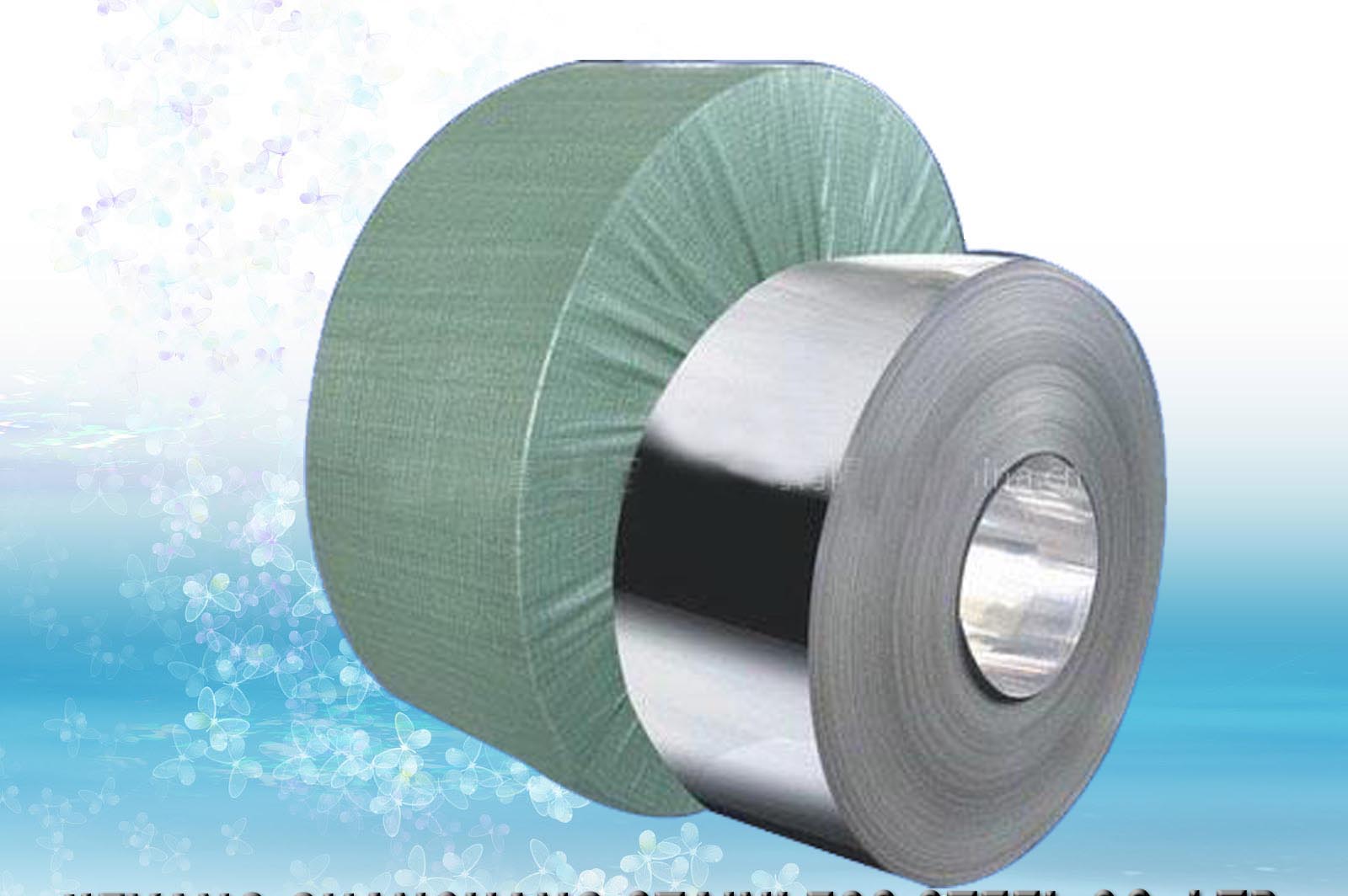
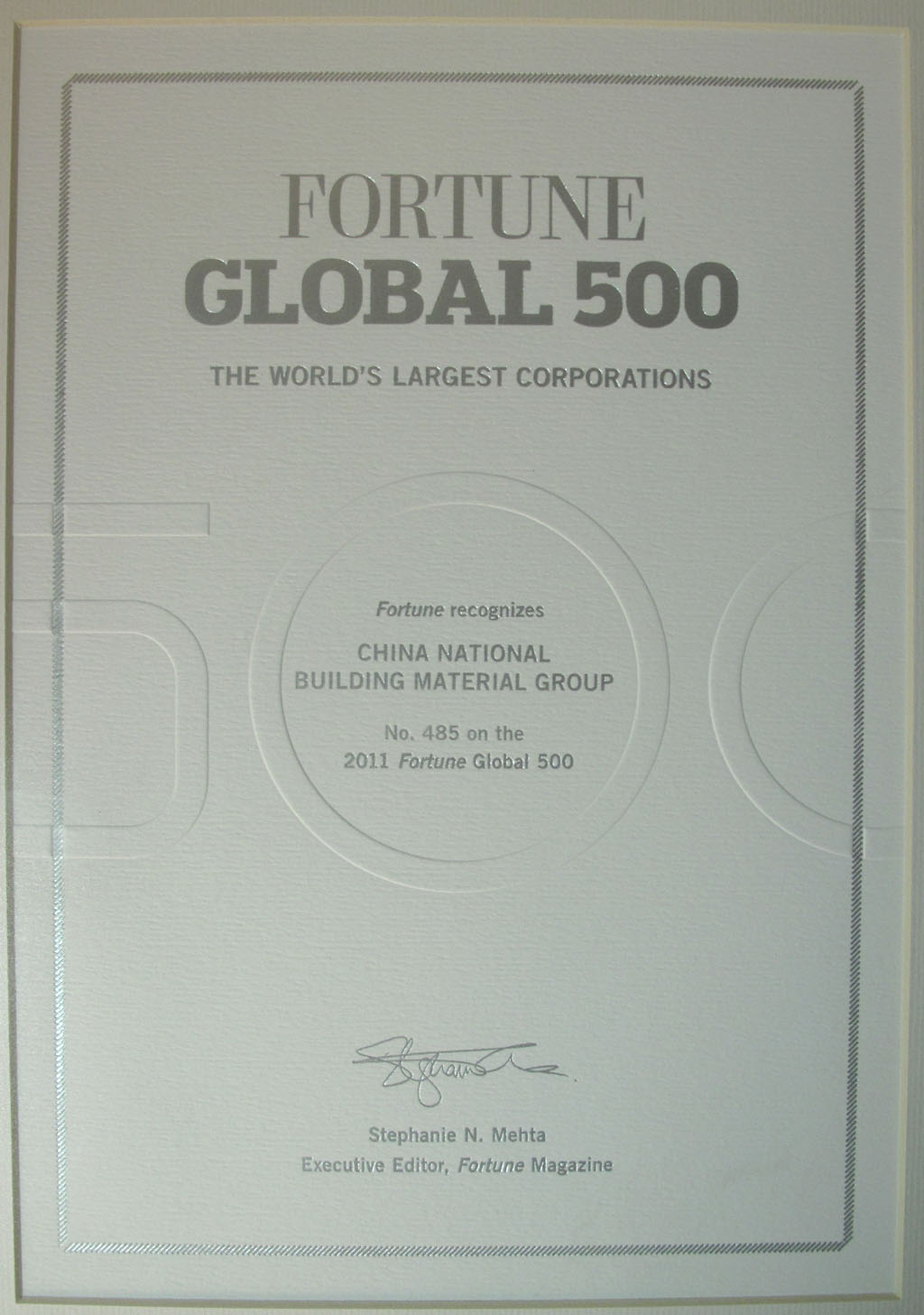
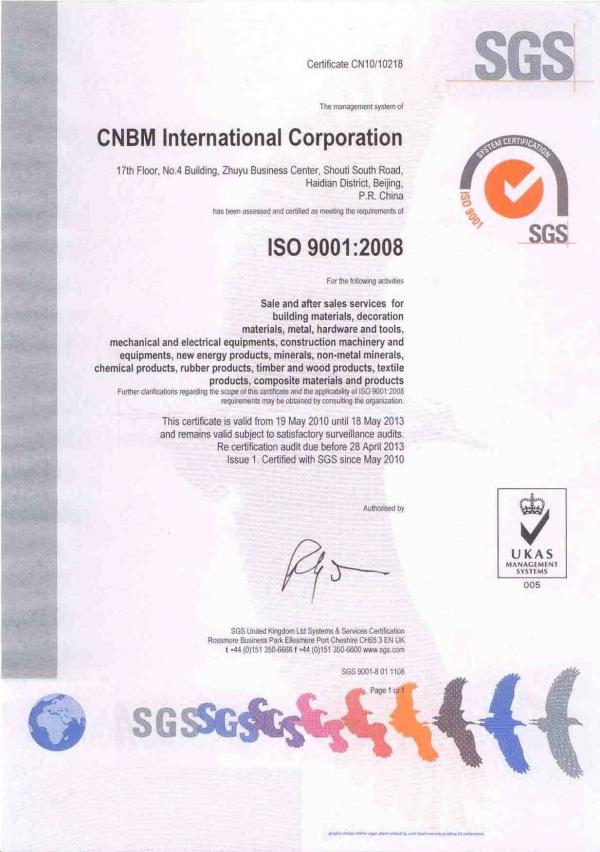
- Q:Is stainless steel wire resistant to crevice corrosion?
- Stainless steel wire typically exhibits resistance to crevice corrosion. Crevice corrosion arises when two surfaces are separated by a small gap or crevice, establishing a stagnant environment that fosters corrosion. However, stainless steel comprises a substantial amount of chromium, which generates a passive oxide layer on the surface, shielding against corrosion. This protective oxide layer serves as a barrier, impeding the infiltration of corrosive substances and obstructing the formation of crevice corrosion. Furthermore, stainless steel wire is frequently alloyed with additional elements like nickel and molybdenum, further augmenting its corrosion resistance, including crevice corrosion. Nevertheless, it is imperative to acknowledge that the level of resistance to crevice corrosion can fluctuate based on the specific grade and composition of the stainless steel wire.
- Q:Can stainless steel wire be coated with plastic?
- Stainless steel wire is capable of being covered in plastic. The act of coating stainless steel wire with plastic serves multiple functions. Primarily, it acts as a shield against corrosion and rust, as the plastic coating creates a barrier between the metal and any external factors that may induce harm. Secondly, the plastic coating provides insulation, rendering the wire suitable for electrical applications requiring insulation. Moreover, the plastic coating has the ability to enhance the wire's appearance, making it more visually pleasing. The process of applying the plastic coating involves utilizing different techniques, such as extrusion or dipping, to apply a layer of plastic material onto the wire's surface.
- Q:Is stainless steel wire easy to weld?
- Yes, stainless steel wire is relatively easy to weld. Stainless steel is known for its excellent weldability due to its low thermal conductivity and high melting point. These properties allow for a controlled and stable welding process. Additionally, stainless steel wire has good ductility and can be easily formed and manipulated during the welding process. However, it is important to note that proper welding techniques and equipment are necessary to achieve high-quality welds with stainless steel wire.
- Q:What does "80 wire" stainless steel plate mean? How much more expensive than the average stainless steel sheet?
- Stainless steel terminology, the general thickness of C to calculate the negative difference, the 1 C is 0.01MM, so 80C is 0.8MM. 0.8MM thick stainless steel with different thickness, different prices, generally about Yuegui thin.
- Q:304 what's the difference between stainless steel and 316?
- 316 stainless steel, 18Cr-12Ni-2.5Mo add Mo, so its corrosion resistance, corrosion resistance and high temperature strength is very good, can be used in severe conditions; work hardening and (non magnetic)
- Q:Can stainless steel welding rod replace argon arc welding wire?
- But you'd better not.1 stainless steel wire is cheap. The electrode is damaged and the skin cost is high.2 stainless steel wire, the shortest length is 1 meters. Electrode is about thirty centimeters, replacement frequently. The welding wire head is surplus.
- Q:What are the uses of stainless steel fiber yarn?
- The stainless steel fiber internal structure, physical and chemical properties and surface properties changed significantly in the process of fibrosis, stainless steel fiber not only has metal material inherent high elastic modulus, high bending resistance and tensile strength of all the advantages, but also has non stainless steel fiber with some special properties and wide application.
- Q:What are the different types of stainless steel wire springs used in the transportation industry?
- The transportation industry commonly utilizes several types of stainless steel wire springs. These springs have been specifically designed to deliver reliable and efficient performance across a range of applications. One particular type of stainless steel wire spring that finds extensive use in transportation is the compression spring. These springs are engineered to withstand compressive forces and are commonly employed in suspension systems, shock absorbers, and engine mounts. The use of stainless steel ensures these springs possess the necessary strength and corrosion resistance, which are essential in the demanding conditions of the transportation industry. Another type of stainless steel wire spring employed in transportation is the tension spring. Tension springs are designed to resist stretching forces and are frequently utilized in applications such as belts, cables, and clamps. Similar to compression springs, these springs are also manufactured from stainless steel to ensure durability and resistance to corrosion. Furthermore, stainless steel wire extension springs are also widely used in the transportation industry. These springs are designed to store and release energy when pulled or stretched and are commonly found in applications such as door latches, hinges, and retractable seat belts. Stainless steel extension springs offer the necessary strength and corrosion resistance to endure the constant tension and stretching associated with these applications. Lastly, the transportation industry relies on torsion springs, which are designed to resist twisting forces. These springs are commonly used in applications such as vehicle suspension systems, steering mechanisms, and brake systems. Stainless steel torsion springs are preferred due to their ability to withstand the high stresses and harsh conditions experienced in these applications. In summary, the safe and efficient functioning of vehicles and their components in the transportation industry heavily depends on the utilization of various types of stainless steel wire springs. These springs have been specifically designed to possess the required strength, corrosion resistance, and reliability to meet the demanding standards of this industry.
- Q:Can stainless steel wire be used for springs in the mining industry?
- Stainless steel wire is a suitable choice for springs used in the mining industry. Its exceptional strength, resistance to corrosion, and durability make it an ideal material for harsh and demanding environments like mining operations. Springs crafted from stainless steel wire can endure substantial loads, extreme temperatures, and exposure to water, chemicals, and abrasive substances commonly present in mining activities. Furthermore, stainless steel's non-magnetic properties offer advantages in specific mining applications. As a result, stainless steel wire springs find widespread usage in a range of mining equipment and machinery, including crushers, screens, conveyors, and drilling tools, ensuring dependable and long-lasting performance.
- Q:Is stainless steel wire suitable for wire rope connectors?
- Yes, stainless steel wire is suitable for wire rope connectors. Stainless steel is known for its corrosion resistance, making it a reliable choice for outdoor and marine applications where the wire rope may be exposed to moisture and other harsh elements. Additionally, stainless steel wire has high tensile strength, allowing it to withstand heavy loads and provide secure connections. It is also durable and long-lasting, ensuring the wire rope connectors will maintain their integrity over time.
1. Manufacturer Overview |
|
|---|---|
| Location | Shandong,China |
| Year Established | 2005 |
| Annual Output Value | Above US$5.3 Million |
| Main Markets | Europe, China |
| Company Certifications | ISO9001:2000 |
2. Manufacturer Certificates |
|
|---|---|
| a) Certification Name | |
| Range | |
| Reference | |
| Validity Period | |
3. Manufacturer Capability |
|
|---|---|
| a)Trade Capacity | |
| Nearest Port | Tian Jin |
| Export Percentage | 30% |
| No.of Employees in Trade Department | 40 People |
| Language Spoken: | English;Chinese |
| b)Factory Information | |
| Factory Size: | Above 50,000 square meters |
| No. of Production Lines | Above 8 |
| Contract Manufacturing | OEM Service Offered;Design Service Offered |
| Product Price Range | Average |
Send your message to us
304 Stainless Steel Strips
- Loading Port:
- China Main Port
- Payment Terms:
- TT or LC
- Min Order Qty:
- 1 Ton m.t.
- Supply Capability:
- 3000 Tons Per Month m.t./month
OKorder Service Pledge
OKorder Financial Service
Similar products
New products
Hot products
Hot Searches
Related keywords
